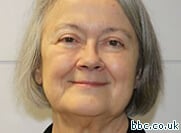A judge who rejected an appeal by Christian B&B owners over their double bed policy has questioned whether the law could better accommodate religious conscience.
Lady Hale, Deputy President of the Supreme Court, said the law needs to work out “how far it should allow for a ‘conscience clause'” for service providers or employees.
In November, she was one of five judges who dismissed an appeal by Peter and Hazelmary Bull after they were successfully sued by gay couple Martyn Hall and Steven Preddy over their policy of only allowing married couples to share a double bed.
Discriminatory
The Bulls’ case was backed by The Christian Institute’s Legal Defence Fund.
In a lecture during a visit to the Law Society of Ireland earlier this month, Lady Hale said the Supreme Court held that the Bulls were “not justified in refusing to provide their services on a non-discriminatory basis”, but she speculated whether “we would be better off with a more nuanced approach”.
She also spoke about the case of Christian registrar Lillian Ladele, who was forced out of her job for her beliefs about marriage – her case was also backed by The Christian Institute.
Conscience
Ladele lost at the European Court of Human Rights, but Lady Hale highlighted the “strongly worded” dissenting opinion of two judges, who argued that this was a case of freedom of conscience, which is a protected human right.
Speaking in reference to the Bulls and the Ladele cases, she commented: “I am not sure that our law has yet found a reasonable accommodation of all these different strands. The story has just begun.”
Earlier this year, Lady Hale said that “it is not difficult to see why the Christians feel that their religious beliefs are not being sufficiently respected”, during a visit to Yale Law School.
She also argued: “Instead of all the technicalities which EU law has produced, would it not be a great deal simpler if we required the providers of employment, goods and services to make reasonable accommodation for the religious beliefs of others?”

